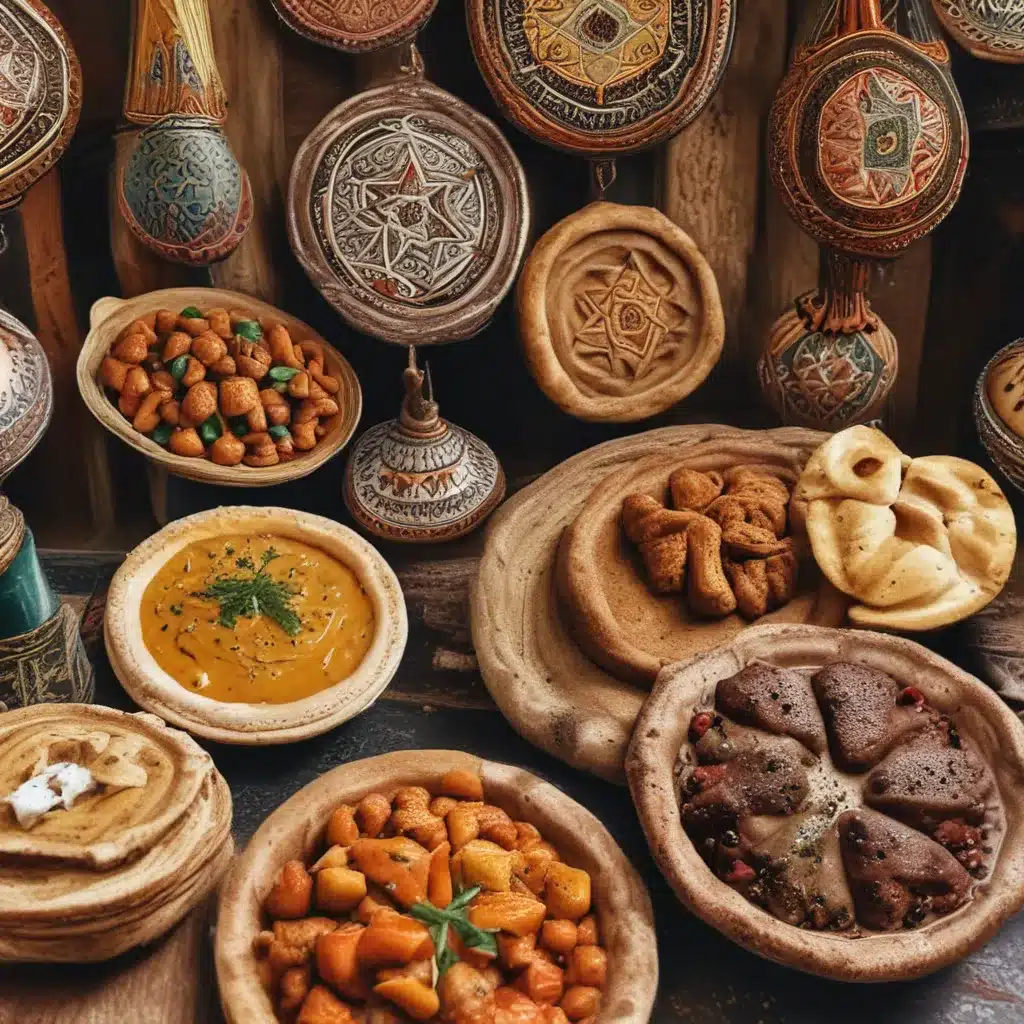
Uncovering the Melting Pot of Moroccan Cuisine
As I stepped through the doors of El Bahia, a renowned Moroccan restaurant nestled in the heart of New York City, the aroma of spices and sizzling meats immediately transported me to the vibrant markets of Marrakech. But hidden beneath the familiar flavors, I sensed a subtle yet captivating thread of Jewish culinary influences that have woven themselves into the tapestry of Moroccan cuisine.
The Moroccan-Jewish Culinary Odyssey
My gastronomic journey began with a deep dive into the history and cultural exchange that have shaped the unique flavors of Morocco. As I discovered, the country’s Jewish community has played a pivotal role in shaping the culinary landscape, dating back centuries. Moroccan food is a testament to the country’s diverse heritage, with influences from Berber, Arab, Mediterranean, and yes, even Jewish traditions.
The story of how these culinary paths converged is a fascinating one. During the late 19th and early 20th centuries, waves of Jewish immigrants from Europe and the Middle East found refuge in Morocco, bringing with them a rich tapestry of recipes and cooking techniques. As they settled in cities like Casablanca, Fez, and Marrakech, these Jewish communities began to integrate their culinary traditions with the local Moroccan fare, creating a delectable fusion that has stood the test of time.
Uncovering the Hidden Gems
As I delved deeper into the menu at El Bahia, I couldn’t help but notice the subtle yet distinct influences of Jewish cuisine. Take, for instance, the fragrant tagine, a quintessential Moroccan dish. While the aromatic blend of spices and slow-cooked meats is undoubtedly Moroccan, the technique of using a clay pot to slow-cook the ingredients is believed to have been introduced by the country’s Jewish communities, who adapted it from the traditional Jewish stew known as cholent.
Another captivating example is the ubiquitous couscous, a staple in Moroccan cuisine. Joel Haber, a renowned expert on Moroccan and Jewish culinary traditions, explains that couscous was likely introduced to Morocco by the country’s Jewish population, who had been preparing the dish for centuries in their North African and Middle Eastern homelands.
Exploring the Melting Pot
As I continued my culinary exploration, I discovered that the interplay between Moroccan and Jewish flavors extends far beyond the kitchen. The vibrant Moroccan-Jewish communities in cities like Montreal have also left an indelible mark on the culinary landscape, blending the best of both worlds.
One such example is the renowned Arthurs Nosh Bar in Montreal, where co-owners Raegan Steinberg and Alex Cohen have crafted a menu that pays homage to their respective Jewish and Moroccan roots. From the impossibly crisp chicken schnitzel sandwich to the indulgent cottage cheese pancakes, the restaurant’s offerings showcase the seamless integration of these culinary traditions.
Savoring the Flavors of Tradition
As I savored each bite at El Bahia, I couldn’t help but marvel at the rich tapestry of flavors that unfolded before me. The succulent lamb tagine, infused with the warm embrace of cinnamon and the bright citrus of preserved lemons, was a testament to the ingenuity of Moroccan-Jewish culinary fusion.
The creamy hummus, dotted with a drizzle of fragrant olive oil and served with freshly baked pita, evoked the shared traditions of the Levant, while the herbal notes of the mint tea, a staple in both Moroccan and Jewish households, provided a refreshing counterpoint to the robust flavors.
Celebrating the Culinary Mosaic
In the bustling kitchen of El Bahia, I witnessed the seamless collaboration of chefs, each contributing their unique cultural heritage to the creation of every dish. It was a symphony of flavors, a celebration of the culinary mosaic that defines Moroccan cuisine.
As I savored the last bites of my meal, I couldn’t help but feel a deep appreciation for the rich tapestry of traditions that have converged to create this culinary masterpiece. From the fragrant spices of the Maghreb to the comforting familiarity of Jewish culinary influences, each bite was a testament to the power of cultural exchange and the boundless creativity that can emerge when diverse culinary traditions come together.
In the end, my experience at El Bahia was not just a meal, but a journey through the vibrant, ever-evolving world of Moroccan cuisine – a world where the flavors of the past and the present seamlessly intertwine, inviting us to explore, savor, and celebrate the richness of our shared culinary heritage.


